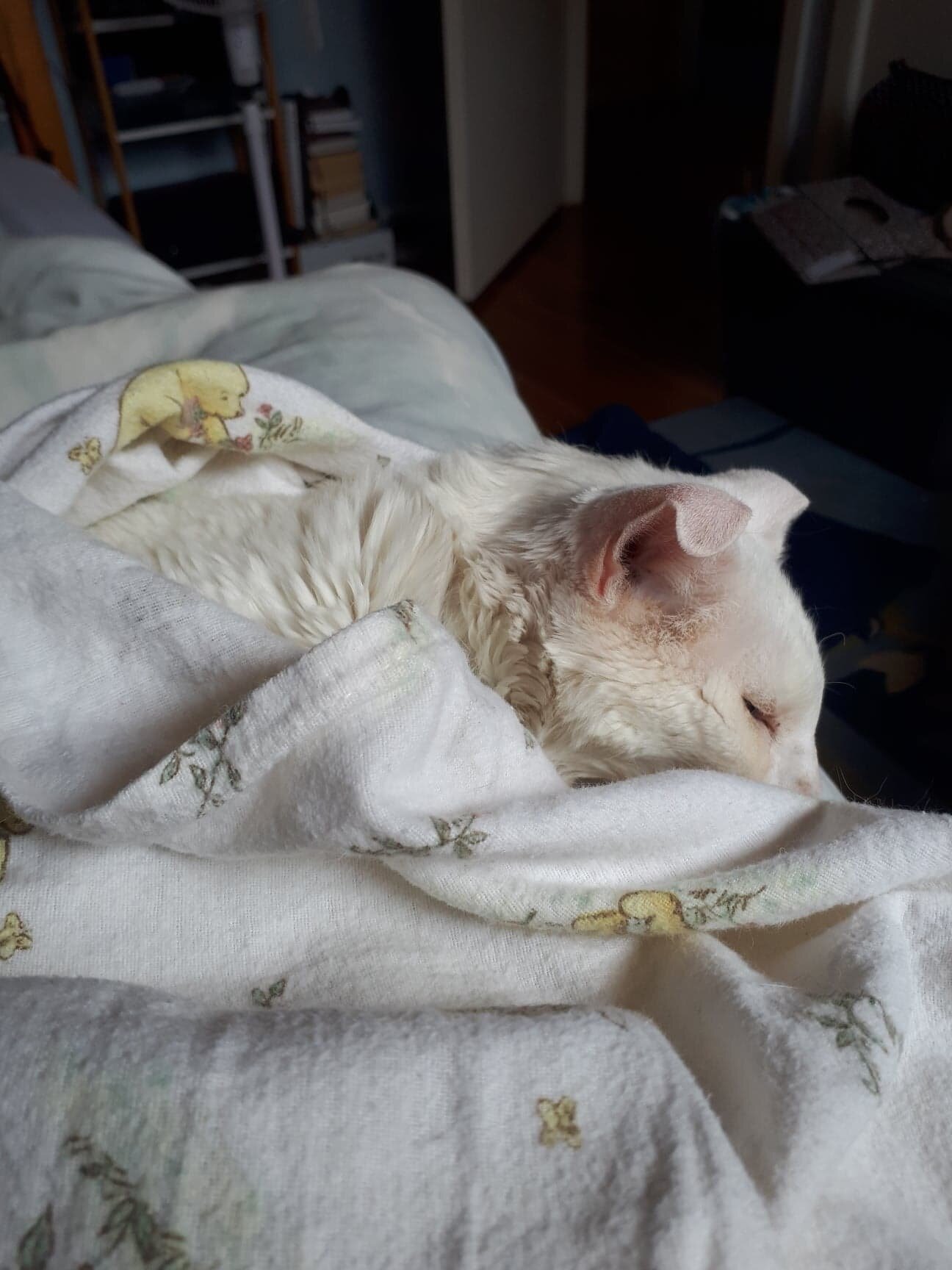What is CFS?
So, I keep talking about CFS. I’ve told you that I have it, I’ve told you when it’s affected me and I’ve even shared a day in my life with it, but one thing I haven’t done is explain what exactly it is. That is my goal with this post. Here, I will explain what CFS is, clear up some potential confusions and explain important terms. That way, when I talk about my CFS, I can send you back here if you need any clarification.
What is CFS?
CFS, or Chronic Fatigue Syndrome, is a condition characterised by extreme fatigue that has lasted longer than 6 months. It is not a well understood disease. We don’t know what causes it, why things exacerbate it or why it sometimes just disappears. This means that while we can treat it and learn how to manage the symptoms, there is no known cure. For some people, it seems to resolve itself. For others, it is lifelong.
It is important to note that fatigue is not tiredness. Tiredness is what you feel after a long day at work. Fatigue is what you feel after a month with a newborn who refuses to sleep. Except, with CFS, there is no newborn, we just feel that way all the time. And sleep doesn’t solve it. In fact, unrefreshing sleep is actually a symptom of CFS.
CF vs CFS vs ME
If you’ve Googled CFS, you’ll recognise these terms. The differences are confusing, so let me clarify.
Chronic fatigue refers to chronic fatigue in general. This can be a symptom of another disease, such as fibromyalgia, insomnia, sleep apnea or even depression and anxiety.
CFS refers to the health condition entirely defined by chronic fatigue, particularly in the absence of any other known cause. It can exist alongside other conditions. For instance, I also have depression and anxiety, but my CFS is unrelated to them.
ME stands for myalgic encephalomyelitis. This is the British term for CFS, so you may see it referred to as CFS/ME. The two names for the same condition came about as they were being observed in the mid-1900s in both the USA and the UK. The two countries both named the disease, and then compared notes.
Symptoms
CFS has various symptoms and differs between people. However, there are two defining symptoms experienced across the board: post-exertional malaise (PEM) and brain fog.
PEM
PEM stands for Post Extertional Malaise. It refers to the worsening of symptoms triggered by activity.
Most people with CFS can engage in some level of activity.l However, how much we can do before we trigger our PEM varies from person to person and even over time. We refer to the amount of activity we can manage as our “thresholds of activity”, or simply thresholds. By being aware of our thresholds and taking breaks before we cross them, we can usually manage our condition relatively well.
NOTE: PEM is why exercise is not actually helpful for us. Unless we are careful, exercise makes things worse.
Brain Fog
Brain fog describes the cognitive impact of CFS. This includes forgetfulness and difficulty concentrating. For most of us, thinking feels like swimming through molasses, or peering through fog – hence the term! Brain fog tends to be the aspect I struggle with the most: I love being able to read and write and think, and when I can’t do those things, I feel bereft.
Pain
Unlike with PEM and brain fog, pain is not experienced universally, nor is it experienced in the same way. Still, a fair portion of people with CFS experience some pain. There are different types of pain: joint pain; muscle pain; headaches; sore throats; and lymphatic pain.
I experience muscle and joint pain, headaches and sore throats. I have found no pattern in what triggers the sore throats or headaches, but my muscle and joint pain are usually triggered by standing or sitting for too long. Just yesterday, I had to stand on a train for about 20 minutes, and spent the rest of the afternoon and evening in severe pain. In order to be able to sleep, I had to ask Mum to massage the painful muscles and then followed it up with heat packs for about an hour.
Unrefreshing Sleep
I mentioned this one in passing earlier, but it is worth explaining a bit more. This symptom does not mean that we never wake up feeling refreshed. Sometimes, we do. But I have found, in general, that it takes at least an hour, usually two, between me waking up and me feeling ready to start engaging with life in some way. I have also found that the mornings I do wake up feel rested, I end up experiencing more fatigue later in the day.
Flares
Flare is the term for periods when our symptoms are more debilitating than usual. It is different from PEM in that PEM is specifically triggered by activity and rarely last longer than a few days. A flare, on the other hand, is an extended period wherein all of our symptoms are worse. For instance, my CFS has been flaring for the last couple of months. As a result, I have experienced more pain and brain fog, and my PEM has been more easily triggered and more debilitating. This is, of course, in comparison to the few months of relative health I enjoyed earlier in the year.
Over to you
I hope that this has helped you develop a greater understanding of what exactly CFS is and how it works. The better you understand the condition, the better you will be able to understand and support those in your life who have it. There are probably more than you realise.
Also, do you have any questions? If so, please ask! Asking questions is the only way to get answers, and is one of the best ways to learn. So ask away, and I’ll be sure to answer!
Bibliography
Of course, I have not compiled the information in this article purely from my own experiences. I have learnt a fair bit from my time with the specialists at the Fatigue Centre in Newtown and from my own researches on the interwebs. Whilst I have not included all the sources I have read over the last few years, I have included the ones that may be the most accessible to you, the reader.
If any of what I am talking about here seems uncomfortably familiar, please talk to your GP. My journey towards diagnosis was (partially) triggered by my recognising symptoms in articles or talks like this one. Please don’t self diagnose, but if you are seriously concerned, begin an honest conversation with your GP about the possibility.
For now though, adieu!
http://www.fatiguecentre.com.au/
https://www.betterhealth.vic.gov.au/health/conditionsandtreatments/chronic-fatigue-syndrome-cfs




